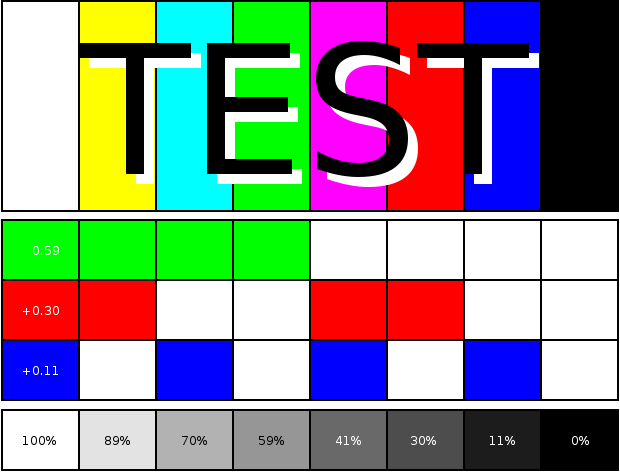A majority of universities abroad require international students to include language proficiency test scores in their applications. Admission officials assume that English isn’t the first language for most foreign students.
They must ensure that the students they admit have enough English proficiency to comprehend English-taught programs and thrive in an English-speaking environment. After all, you’ll be expected to understand complex ideas expressed in English, write long essays, and participate in group discussions.
Most universities require and accept English proficiency test scores in TOEFL, IELTS, PTE, and Duolingo. Each university or college has its required test scores, which you need to find out before taking the test.
Having high English proficiency test scores will widen your options when it comes to universities and colleges abroad. Therefore, even if you feel confident in your language skills, it’s important to adequately prepare yourself before taking an English proficiency test.
Here are a few effective tips to help you prepare for any language proficiency test:
Talk with a School Counselor
Before deciding on which English proficiency exam you will take, it’s important to consider the schools you plan to apply to and find out their standardized test requirements.
If you still don’t have clarity on the college major you want to pursue and the schools to apply to, seek guidance from a school counselor.
They’ll discuss your options and advise you on which English proficiency test to take. They might even go a step further and support you in registering and studying for English proficiency exams.
Pay and Schedule your Test
Once you’ve decided which English proficiency test to take, the next step is to pay and schedule to take the test. Look up how much the test you intend to take costs in your preferred test center. Pay attention to the date, time, and place where you’ll take the test. What are you required to bring to the examination room? What isn’t allowed?
If the exam is taking place in a place that you’re not familiar with, look up the directions and save them on your phone. If possible visit and familiarize yourself with the area – you don’t want to get lost on the day of the test.
Determine your Strengths and Weaknesses
You have a test date and time. Now it’s time to start the real test-prep process. To have an easier time, start by determining your strengths and weaknesses. This will help you define which areas you need to focus on as you prepare for the test.
Consider taking EdAgree’s free English Diagnostic test, which can help you realize your strengths and weaknesses in listening, reading, grammar, and vocabulary skills levels. Taking preliminary practice tests is also helpful. They familiarize you with the format of the test and what to expect, which can reduce your anxiety over the test.
Now that you’ve identified your weak areas, work towards improving them. For instance, if you’re weak in the grammar section, invest more time in refreshing your knowledge of English grammar. Take relevant online prep tests until you feel confident.
Sign up for an Online Language Exchange
In today’s global village, it’s pretty easy to connect with native language speakers from the comfort of your home. Practicing your English language skills with a native speaker is a fun way to prepare for your English proficiency test.
Fortunately, there are many language exchange apps available online. Such apps match you with a native English speaker who wants to learn your native language. While you might have to pay subscription fees for some language exchange apps, there are many of them which are free.
As a bonus, you’ll also get to connect with new people and expand your network. Some of the most used language exchange apps include HelloTalk, Speaky, Bilingua, and Tandem, amongst others.
Download Some Fun Language-learning Apps
We live in a technologically advanced age. Language learning apps have constantly been mushrooming and their popularity keeps rising because of their convenience, affordability, and interactive nature.
These fun apps allow you to practice and improve your language skills. They provide you with constant feedback on your progress and make the learning process more fun. Some of the best language learning apps include Duolingo, Memrise, Busuu, and Fluent U.
Start Writing in a Journal
English language proficiency tests will also test you on your ability to write in the language. It is therefore important not to forget that you need to practice your writing skills just as much as your reading, listening, and speaking skills.
An interesting way to improve writing skills is to keep writing. Keep a journal where you write short stories and keep a record of interesting events and happenings of the day. It doesn’t have to be perfect and you shouldn’t beat yourself over the mistakes that you make. Keeping a journal is also therapeutic, and in the end, it also improves your English-writing skills.
Read Books, Magazines, and Journals
You can improve your reading comprehension by reading a book, magazine, or online articles. Reading is one of the best ways to expand your English vocabulary and familiarize yourself with proper grammatical structure.
You don’t have to read sophisticated books that you won’t enjoy. Go for the genre you enjoy most and have fun with the learning process.
If you don’t have much time for reading, listening to audiobooks comes in handy. While audiobooks also expand your vocabulary and knowledge of grammar, they also help boost your listening comprehension.
The BBC provides a free program called BBC Learning English to offer global audiences audio, video, and text resources that are simple to understand. These tools are frequently brief, enjoyable, and simple to grasp – ideal for someone wishing to practice their English!
Listen to a Podcast or Radio
Try out an English-language podcast or radio program to vary your listening comprehension. This is significantly more challenging than watching TV or movies because there are no visual cues present, and it’s more likely to be the format you’ll see on an actual English exam.
Start with a podcast tailored for English language learners. Short lessons, discussions on grammar or other frequent English queries, or simplified stories or conversations are frequently included in such podcasts.
The goal of studying a language is to improve your overall comprehension, as well as your intonation, pronunciation, and vocabulary. When you speak a language well, you’ll sound more natural when communicating with people.
This article has given you a headstart on how to prepare for your language proficiency test. However, there are many more things you can do to improve your English language skills before your test.
Think of more creative ways of learning the language. Speak to yourself or your pets in English, ask the people around you to speak to you in English, and watch Hollywood movies. Get started today, and you’ll ace that language proficiency test.
Do you want to learn more about studying abroad and exploring new scholarship opportunities?
Check out our robust scholarship research tool and follow us on Medium, Twitter, Facebook, and LinkedIn!



